What Do We Do When Kids Don’t Like Math?
A MiddleWeb Blog
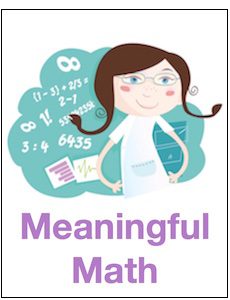
It made an impression on me because of the way the student said it. She wasn’t being rude or sarcastic, just matter-of-fact. The student is a very pleasant person; she just doesn’t like math. And she’s not an outlier. Over the years I’ve had many other students tell me they don’t like math.
When I first started teaching, I was always surprised when students (both boys and girls – it’s really pretty much a 50/50 split) told me they didn’t like math. After eleven years I’m not surprised anymore, but it still bothers me.
Even when a student follows up with, “I like you, I just don’t like math,” it upsets me. It hurts because I realize I’ve failed that student. My job is to help them see how useful, beautiful and interesting math is.
Strugglers and skeptics
In my experience, students who don’t like math usually fall into the following categories:

2.) Students who don’t see the relevance or importance of math.
3.) Students who are very focused on other areas and just are not interested in math.
That’s not to say those are the only scenarios, but that’s what I tend to see most often. With this in mind, I have listed a few a challenges and goals related to helping students learn to like math. In this article I’ve tried to focus on how we might reach the student who may have struggled in the past or the one who thinks they are just not a “math person.”
Challenges:
- The sheer number of standards we are assigned to teach. For instance, I currently teach Algebra 2 with Trigonometry. The Alabama Course of Study contains 50 content standards for this course. Teaching the assigned content standards leaves little time for activities not directly related to content.
- Test prep. My students will take the ACT in the spring which means test prep beforehand. I don’t think test prep has ever fostered a love of mathematics in students!
- Gaps in understanding. People tend to dislike things when they continuously struggle to figure out what’s going on.
- Students have heard their parents or other adults say they don’t like math, so it seems natural and okay that they don’t like math either.
- Every student is different. For example, some students love to work with other students, and some students find group work very uncomfortable.
Goals:
- Post a puzzle for students. Puzzles provide a chance for all students to start on equal footing and let some students excel who typically struggle. I have had good success posting puzzles and games at the front of the room and letting students participate voluntarily. All I have to do is put up a fresh puzzle or number challenge and certain students will be drawn to it. ( Math Equals Love is great resource for puzzles and activities.) One student suggested that it is more helpful if the puzzle is related to the lesson.
- Keep students from becoming discouraged because of gaps in understanding by providing an entry point for all students in all lessons. The objective here is to carefully think of all the skills required for the lesson and a way to help students who may be lacking this skill. This is much easier said than done, because it means rethinking every lesson and looking at it through the eyes of struggling students.
- Realize that everyone’s definition of fun is different. Some students love Kahoot, but that doesn’t mean that everyone will think it’s fun. Just because I searched the internet for hours to find a Numberphile video that I think is awesome does not mean that all the students will like it. Just be satisfied if a few or even one student is inspired by it.
- Be more patient. Many students already feel insecure about their math skills and they will need extra time and encouragement.
- Be sensitive and make allowances for the variety of personalities in the classroom.
- Share what I personally love about math. I love Escher prints and I have them placed throughout my room. I’ve had a lot of interesting conversations with students about his art. Discover Escher and his work here and here.
Another area I need to address: many students say they don’t like math because they don’t see the relevance. Students will tell me point blank that they will never use what they are learning in Algebra 2 with Trig. Or they will ask, “where will I use this?” I think that is a valid question, but it is a topic worthy of deeper exploration, which I plan to explore in a future post.
Even though I get discouraged when a student tells me they don’t like math, I’m going to keep trying! I know on some level that I can’t make all students love math (or even like it). But it is my job to try. I think it’s important for students to leave my class with the best possible impression of math that I can give them.
How do you deal with students who say they don’t like math? Please add comments below.
More resources:
Middle-Schoolers Like Math, But P.E. More Popular, Survey Finds
Math Relevance to U.S. Middle School Students: Survey Commissioned by Raytheon Company

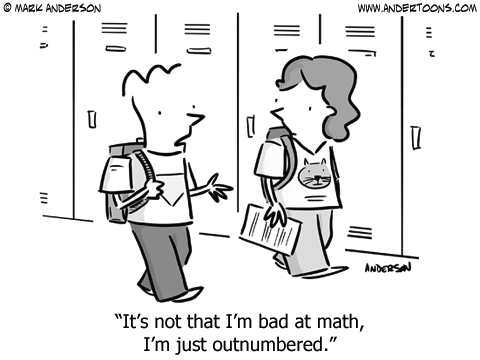

















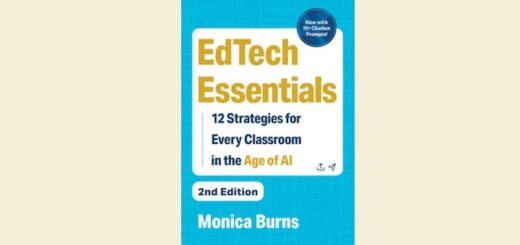
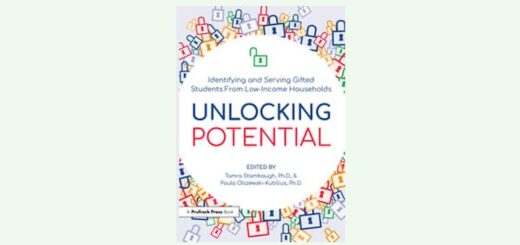


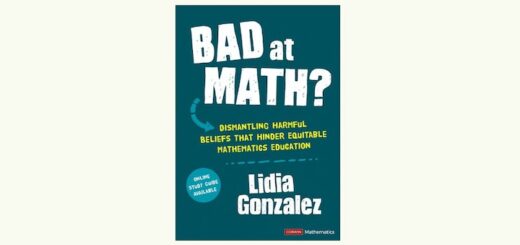




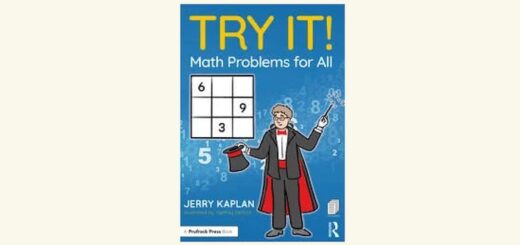










I tell my high school students that I do not know when they use this math, because I don’t know what they will be doing in 5, 10 or even 20 years. I tell them that I am filling their tool box for their after (high school) life, and I hope they will some day see the significance even if it is just to helps their children with their homework some day. I will then remind them that upon graduating from college, I swore I would NEVER teach, and look at how THAT worked out for me.
Thanks for your comment! So true!! I tell my students the same thing.
You have made the crucial point, i.e. that school is an investment for tomorrow. Recess is some fun for today. Without today’s investment, students will not earn enough to be able to afford fun in the future!
I majored in math as an undergraduate before going on to become a European historian. Here are two examples of how math helped me in totally unexpected ways. Adam Smith is the Scot who invented market economics on which capitalist economies are based today. While studying him, I suddenly realized something that no commentary I have ever read about him ever mentioned. What I noticed was that an understanding of the new mathematics called Calculus was the foundation for his thought. I have also studied the history of architecture. Much really adventurous German architecture of the eighteenth century was inspired by the newly invented analytical geometry.
Every form of mathematics we learn, every vocabulary word we master, every foreign language we study opens doors we could never have imagined in advance!
I have a daughter in Freshman year. She is in Algebra 2 with Trigonometry. She always asks me “Where will I use this?”. I say to her that Math is used in all parts of life. I know my answer is very normal . In my opinion if the student knows exactly that what they are learning can be implemented in a profession in a particular way, they will develop more passion towards the subject
I agree with you! But I will be honest, many times my attempts to show students how they can use the math they are learning in the real world have fallen a little flat. I know this is an area I need to work on and I do plan to explore it further in a future post. Thanks for your comment!
The big mistake we are making as teachers is in trying, even promising, to make every lesson fun or even interesting. There are many things that are fun to know that were not fun to learn. We just have to make the investment before we get the return. Be honest and think back about the days in which you learned to swim. Can you honestly say it was fun to jump into cold water, NOT breath while under water, float on water when you had never floated in the bathtub? Yet that was all forgotten the minute you could actually swim! People who learn a lot also struggle a lot. They spend a lot of time on tedious tasks. Multiplication tables anyone? A pain to learn, but useful a hundreds of time. Did I enjoy learning German? Boring! Do I love to speak and read it? Nothing more wonderful! We need to spend more time explaining to a child that he will need these math skills later in life to do things he very much wants to do at that time. Talk about needs, not wants, about investment, not pleasure. There are plenty of hours outside school for fun. Children need to learn that good hard work brings much bigger rewards and satisfaction than just having fun!
Thank you for your comment. You were able to put in words some things I have thought about for a long time. As a teacher I feel like I’m always trying to balance between teaching students what they need to know and making the class a pleasant and fun experience. You are right, hard work leads to mastery, and mastery is fulfilling and rewarding. Thanks for adding an important piece to this conversation!
Thank you for this Madam. You reopened my eyes to what i used to think to be more important. I must admit it is hard to make everyday a fun day to teach math, coz truly most lessons are not always fun 😭 but indeed, their mastery and gratitude for learning by working hard is more fulfilling in the end 😊 once again, thank you!
I taught science, and thanks to a partnership with a wonderful math teacher, we tied the subjects together to bring relevance to both. Do you have a STEM teacher in your school? If so, (s)he should be bringing relevant math into her STEM projects. (STEM is an integrated subject.)
For example, when the STEM challenge involved designing a system of barriers that would prevent sediment from washing into a stream, the kids in math found that their study of rate and of flow rate was critical. Couldn’t even have done the project without that information.
So – look for teachers in your school who will work with you to bring some usefulness to trig, geometry, algebra, etc. What part of their math can the kids apply now? What problem could that information help to solve?
What other teachers will work with you on a project to apply these? Learning for the future doesn’t always appeal to teens, unfortunately.
Great job on identifying a critical issue and suggesting such good solutions!
What great ideas!! I agree STEM challenges are a great way to bring relevance to math. I remember taking Physics in college and how eye opening it was to see how the math I learned was being applied. Thanks again for an important suggestion!
I tell my students that learning math helps them build their analytical abilities and problem solving skills which they will use in their lives constantly indirectly. I make it as much enjoyable as possible.
You are so right, I tell my students the same thing. The procedures and processes you use in math transfer to so many other areas of life. Thanks for sharing!
So many great responses. When a student asks me “when will I ever use this?” I blow them away with “you probably won’t use that specific idea.” They are speechless for a few seconds.
I am not sure I have ever used the Pythagorean Theorem outside of of school (I know there are applications, but have I actually used them). I have never measured my yard to figure out how much fencing I need for my dog (I call a company and work with them). I have never written anything in scientific notation on my own outside of school.
Then, I use an analogy from football (pick your sport – wrestling, cross country, etc). I talk about how players are always in the weight room. They lift very heavy weights. Yet, I have NEVER seen a weight bench on the football field. They never actually lift weights during the game. The goal of lifting weights is to get stronger for the game, so they can be more successful.
You can use cross country where they run miles and miles in practice, even though the race is usually only 3 miles. They do this to get in shape and prepare themselves for the race.
I then connect this to how we are learning how to learn, and strengthening the brain and increasing our capacity to learn more. I talk a lot in my classroom about neuroscience and how the brain learns.
Every time I use this approach, I see students nod their heads and realize that maybe we are doing something that has a purpose in our lives now and in the future that is related to how we think and process information. They seem to engage more at that point.
Thank you for your comment! I really like the sports analogy, I know it would hit home with many students. I like that you are completely honest with your students and let them know that they might not use that specific idea in their real life. Thanks again!
This definitely gave me a new perspective on how to explain my students the importance of practice. Thank you so much 😊
Excellent connection!!
I usually tell students that we are just learning how to solve problems. To navigate around a city means you need to be able to read a map. To make a gourmet meal, you need to be able to follow a recipe. We are teaching them the stepping stones for problem solving! That said, I give my students lots of problems like cross word puzzles and sudokus. These are wonderful tools for helping them to think outside the box.
I do feel that there is too much in the curriculum and teachers are forced to move on in order to cover all the topics. Many years ago my father explained division of fractions to me. We spent hours drawing pictures. My mother looked on and said “no need to spend hours drawing pictures, just invert and multiply.” But Dad made me ‘see’ it. My students divide themselves into the formula memorizers and the picture drawers and the picture drawers like math. I always have liked the problems I can’t do. I love playing around and finally discovering the solution. But too many students give up in seconds.